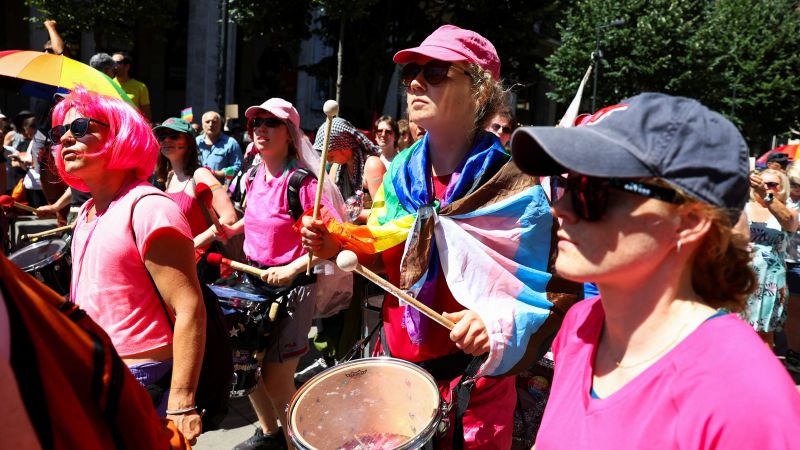On a vibrant day filled with rainbow flags and spirited chants, thousands gathered in Budapest for the city’s 30th annual Pride march. This year’s event served both as a celebration and a show of resistance.
As demonstrators paraded through the city under the scorching sun, their signs proclaimed messages of support, such as “Solidarity with Budapest Pride,” alongside images that crossed out Prime Minister Viktor Orbán’s likeness. Music pulsated from portable speakers, drawing participants of all ages—including families with children, teens draped in colorful capes, and older citizens marching alongside LGBTQ+ activists.
The procession grew louder and more numerous, reclaiming public space in a bold response to legislation aimed at marginalizing them. This march directly opposed a police ban enforced earlier this year under expansive new laws restricting LGBTQ+ events nationwide.
Eszter Rein Bodi, a participant in the massive gathering, emphasized the march’s significance, stating, “This is about much more, not just about homosexuality … This is the last moment to stand up for our rights.”
Krisztina Aranyi echoed this sentiment, asserting, “The right to assembly is a basic human right, and I don’t think it should be banned.” She added, “Just because someone does not like the reason why you go to the street, or they do not agree with it, you still have the right to do so.”
Supporters showcased numerous homemade banners, with slogans like “Transgender people are a blessing on this earth” and “Proud. United. Equal in every corner of the EU.” Reports indicated that at least 70 members of the European Parliament were anticipated to join the festivities.
Dutch MEP van Sparrentak expressed her commitment to the cause, stating that she will attend Budapest Pride to “support the LGBTIQ+ community in Hungary, to let them know that they are not alone (and) to be visible as a community.” She added critically, “Pride is a protest, and if Orbán can ban Budapest Pride without consequences, every pride is one election away from being banned.”
In March, Hungarian lawmakers enacted a law prohibiting Pride events and authorized the use of facial recognition technology to identify participants—actions condemned by campaigners as part of a broader crackdown on LGBTQ+ rights.
Following the new legislation, temporary surveillance cameras were set up along the march route. Orbán defended the ban, claiming it was necessary to prohibit assemblies that “violate child protection laws,” as his government has promoted a strongly Christian and conservative agenda.
The ban triggered significant protests in Budapest in March, with Pride organizers resolute in their determination to continue the festival, declaring, “We will fight this new fascist ban.” A petition decrying the police ban has garnered over 120,000 signatures from supporters across 73 countries, calling for an end to what they describe as an unjust law, and for the march to proceed “unhindered and peacefully, free from discrimination, harassment, fear or violence.”
This report was co-authored by CNN’s Catherine Nicholls and Billy Stockwell.

